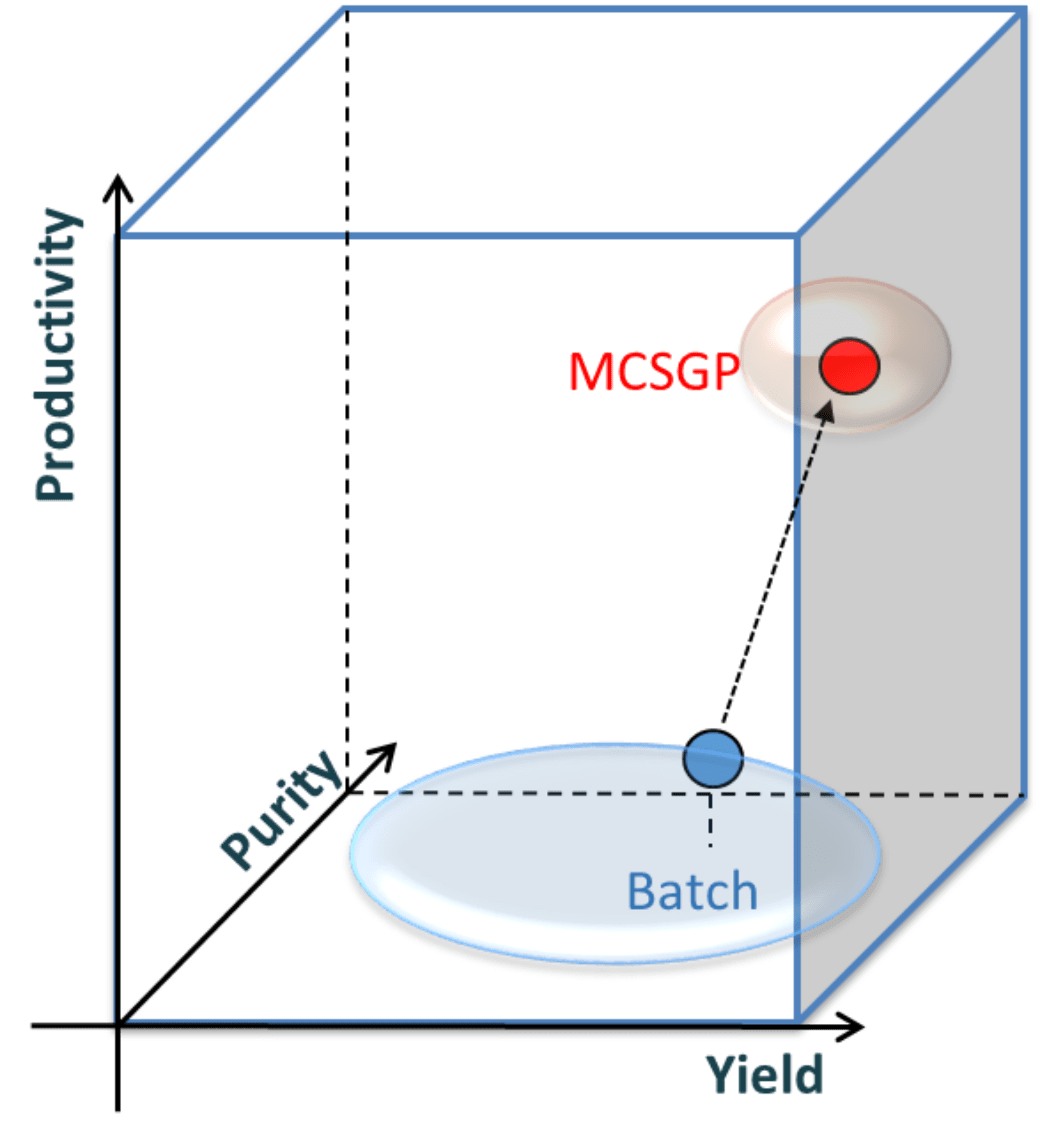MCSGP for Peptide Purification
MCSGP economic benefits
Multi-column Counter-current Solvent Gradient Purification process (MCSGP) is a continuous process operated on the lab-scale Contichrom CUBE and Contichrom Twin pilot / process scale equipment. It provides significant economic benefits compared to single column batch chromatography operated at low, medium and high pressure. The economic benefits are derived from the achievement of significant higher yield at target purity, lower buffer/solvent consumption and higher productivity. Economic benefits are always obtained, not depending on products or applications, yet, the more complex the separation task, the higher the benefits obtained through the MCSGP process.
Application of MCSGP for peptide purification
High pressure liquid chromatography employing MCSGP provides a novel purification technology for peptides produced by chemical synthesis. MCSGP offers a step change in efficiency compared to batch HPLC processing. With MCSGP, two identical reverse-phase columns are operated under high pressures in countercurrent mode with internal recycling of impurity-containing side fractions, extracting continuously pure product and discarding impurities without significant product loss. Peptides can be purified at preparative / production scale with significantly higher yield without compromising target purity. The process allows an up to 10-fold higher productivity with typically 75% lower solvent consumption providing an overall economical attractive production scenario and allowing to push the boundary of economic synthesis of long peptides.
MCSGP process principle and design
The MCSGP process is the only known ternary continuous separation process that can unlock the yield-purity trade-off dilemma by providing high yield at target purity, thereby enhancing productivity.
Selected publications:
- Process Intensification for the Purification of Peptidomimetics: The Case of Icatibant through Multicolumn Countercurrent Solvent Gradient Purification (MCSGP). De Luca, C., Felletti, S., Bozza, D., Lievore, G., Morbidelli, M., Sponchioni, M., Cavazzini, A. 2021. Ind . Closely. Chem. Res. 2021, 60, 18, 6826-6834
- Experimental design of a twin-column countercurrent gradient purification process. Steinebach F, Ulmer N, Decker L, Aumann L, Morbidelli M Journal of Chromatography A 2017, 1492, 26
- Enabling high purities and yields in therapeutic peptide purification using multicolumn countercurrent solvent gradient
T. Müller-Späth, G. Ströhlein, O. Lyngberg, D. Maclean, Chimica Oggi-Chemistry Today 2013, 31 (5), 56-61 . open access.



